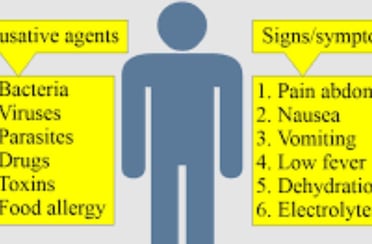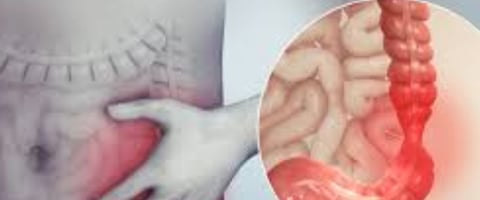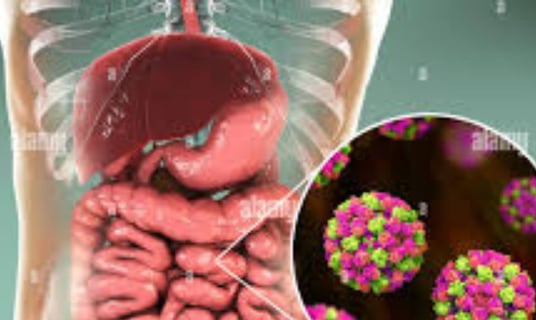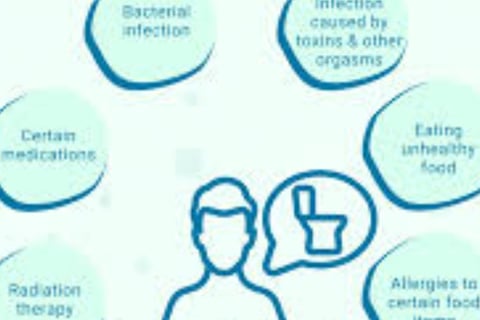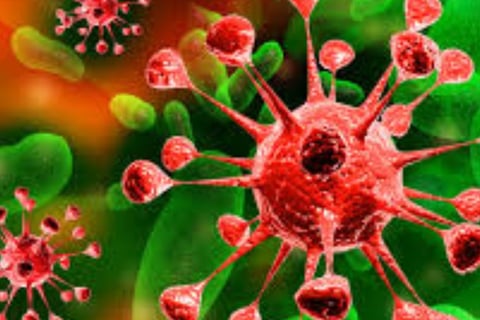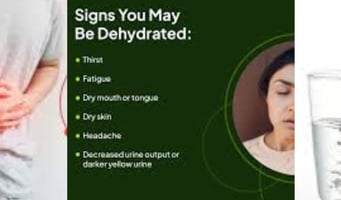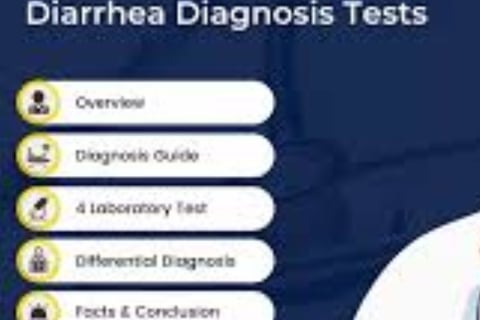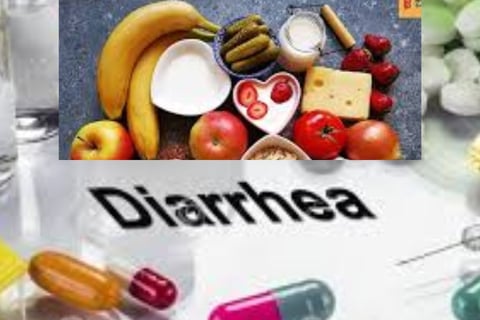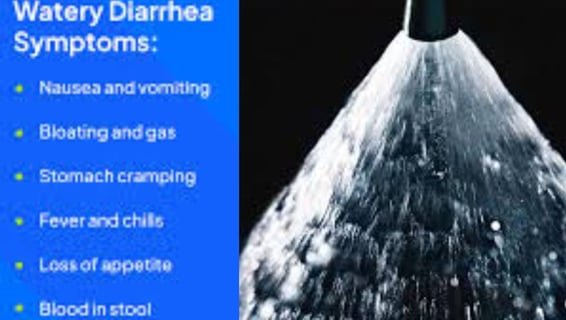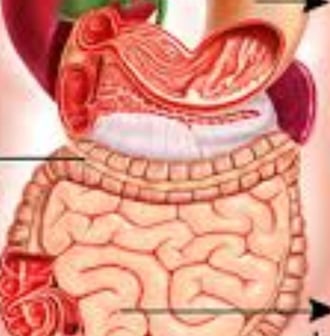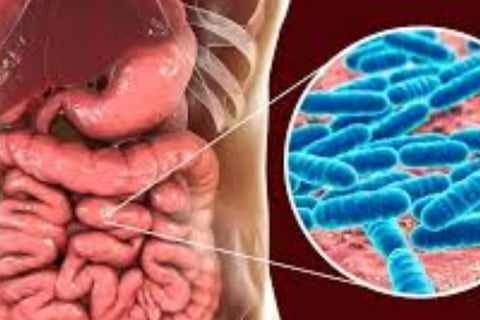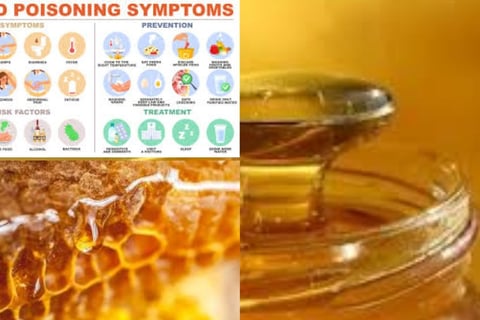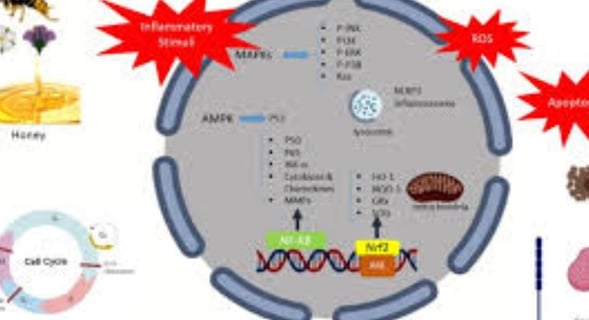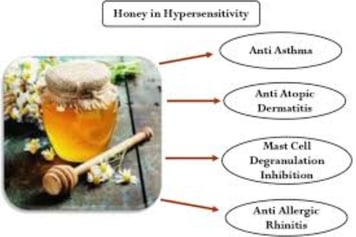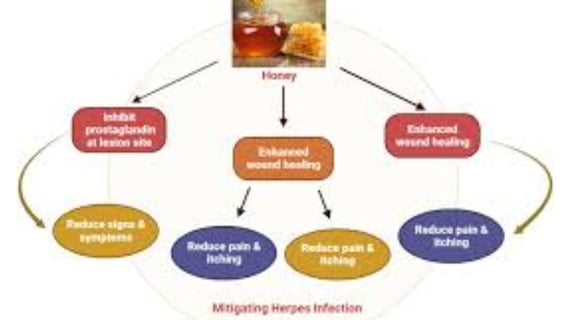
Health is a crown on the heads of the healthy that only the sick can see.
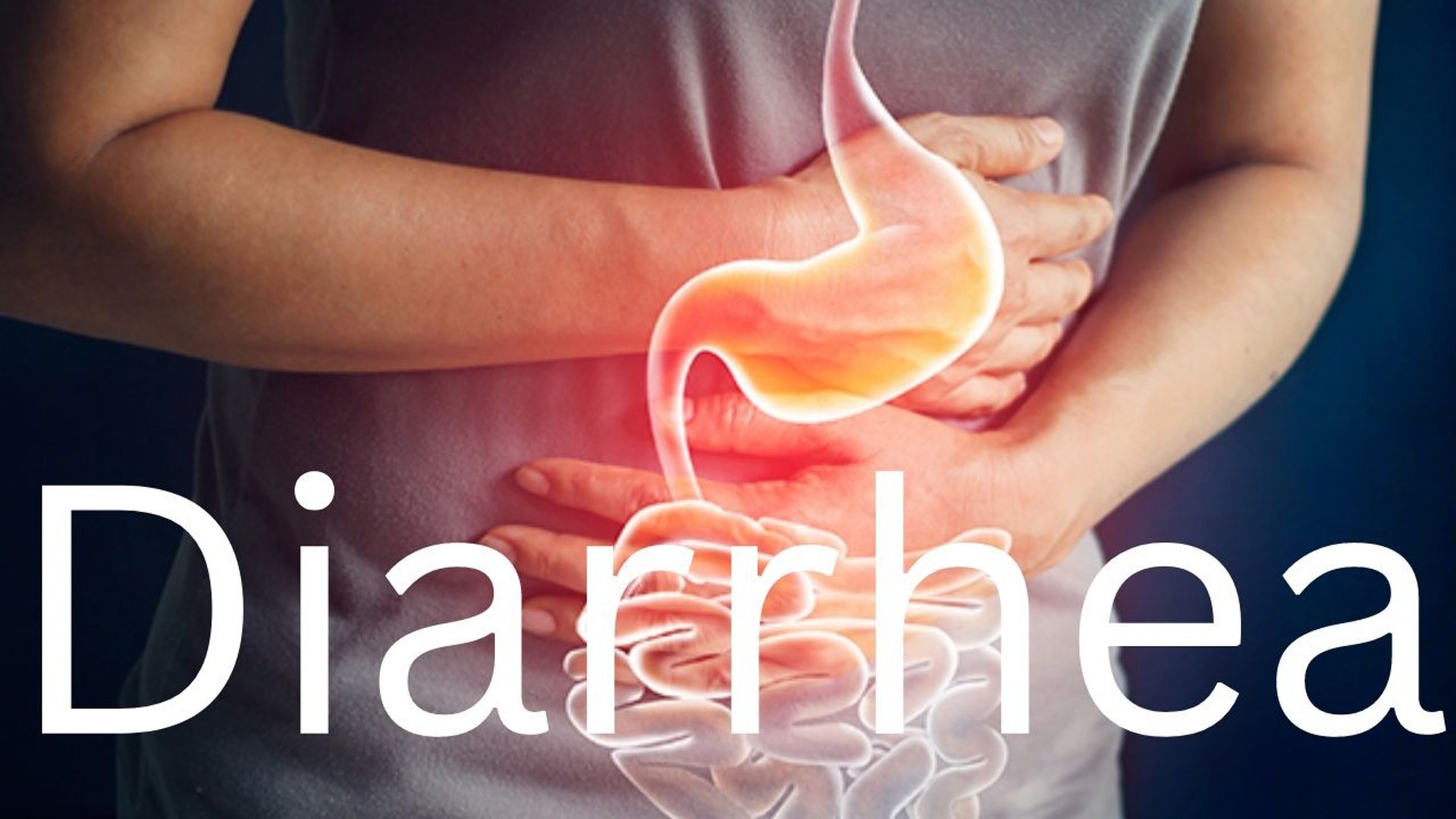
Diarrhea the golden rule : fasting and honey
Discover the golden rule for diarrhea management through fasting and the benefits of antioxidants. Learn how nutrition, vitamins, and honey can aid in healing, support cognitive health, and alleviate medication side effects related to IBS, celiac disease, and chronic infections.
GASTROINTESTINAL
Dr Hassan Alwarraqi
9/11/2024


Diarrhea the golden rule : fasting and honey
Characterized by the frequent occurrence of loose and watery stools
diarrhea is a common concern
In some cases, it may manifest as the only symptom of a more serious condition
it can present with other symptoms such as nausea, vomiting, abdominal pain, or weight loss
diarrhea usually resolves swiftly, typically within a few days
However, if it continues beyond this period, it may suggest an underlying problem
which could include medication side effects, changes in diet, irritable bowel syndrome (IBS), or more severe conditions like chronic infections, celiac disease, or inflammatory bowel disease (IBD)
Symptoms
- Abdominal cramps or discomfort.
- Abdominal swelling.
- Nausea.
- Vomiting.
- Increased body temperature.
- Blood present in the stool.
- Mucus present in the stool.
- An urgent need to defecate.
medical attention if:
- Diarrhea continues or shows no improvement after two days.
- Symptoms of dehydration manifest.
- Intense abdominal or rectal pain is felt.
- Stools appear bloody or black.
- Fever rises above 101 degrees Fahrenheit (38 degrees Celsius).
In children
particularly infants, diarrhea can lead to dehydration swiftly
It is recommended to consult a physician if
your child's diarrhea does not improve within 24 hours or if your child:
- Shows signs of dehydration.
- Develops a fever exceeding 101 degrees Fahrenheit (38 degrees Celsius).
- Has stools that are bloody or black.
Various diseases and conditions can lead to diarrhea
Viruses
S Norwalk virus (norovirus), enteric adenoviruses, astrovirus, cytomegalovirus, and hepatitis viruses
Rotavirus causing sudden diarrhea in children
COVID-19 has been associated with gastrointestinal symptoms, including nausea, vomiting, and diarrhea.
Bacteria and parasites
Escherichia coli, or parasites through contaminated food or water
This type of diarrhea, often referred to as traveler's diarrhea, is common among individuals traveling in developing nations
Clostridioides difficile, or C. diff, cause diarrhea, particularly following antibiotic
Medications
antibiotics, can lead to diarrhea
While antibiotics effectively eliminate harmful bacteria
they also disrupt the balance of beneficial bacteria in the intestines
cause diarrhea
include anticancer drugs and antacids containing magnesium.
Lactose intolerance. Lactose, a sugar present in milk and dairy products, can cause diarrhea in individuals who have difficulty digesting it.
may worsen with age Lactose intolerance
Fructose. Fructose, a sugar naturally found in fruits and honey, can also lead to diarrhea in individuals who struggle to digest it
Artificial sweeteners. Non Absorbable sugars such as sorbitol, erythritol, and mannitol,
Surgery. partial removal of the intestine or gallbladder can also contribute to diarrhea.
antibiotics
laxatives, magnesium supplements, antidepressants, NSAIDs, along with chemotherapy and immunotherapy, can contribute to the occurrence of diarrhea
Complications
Diarrhea can result in dehydration
which poses a significant risk to life if not treated effectively
This condition is particularly hazardous for children, the elderly, and individuals with weakened immune systems.
It is crucial to seek medical attention if you exhibit symptoms indicative of severe dehydration.
In adults
symptoms of dehydration may include:
- Intense thirst
- Dry mouth or skin
- Very little or no urination
- Weakness, dizziness, or lightheadedness
- Fatigue
- Dark urine
In infants and young children
symptoms of dehydration may manifest as:
- No wet diaper for three hours or more
- Dryness of the mouth and tongue
- Fever above 102 degrees Fahrenheit (39 degrees Celsius)
- Crying without tears
- Drowsiness, unresponsiveness, or irritability
- A sunken appearance in the belly, eyes, or cheeks
Prevention
Preventing Infectious Diarrhea
To prevent the spread of infectious diarrhea, maintaining proper hand hygiene is crucial. To achieve effective hand-washing:
- Wash your hands often. It is advisable to wash your hands before and after food preparation, as well as after handling raw meat, using the restroom, changing diapers, and after sneezing, coughing, or blowing your nose
- Lather with soap for at least 20 seconds. After applying soap, rub your hands together for a minimum of 20 seconds
- Use hand sanitizer when washing is not an option. When a sink is not accessible, apply an alcohol-based hand sanitizer
ensuring that both the front and back of your hands are thoroughly covered
Diarrhea different types
Acute diarrhea: Defined as loose and watery stools lasting from one to two days, this is the most common type and generally resolves spontaneously without treatment.
Persistent diarrhea: This type persists for about two to four weeks.
Chronic diarrhea: Chronic diarrhea lasts for over four weeks or occurs intermittently over a long duration. may indicate a more serious health issue
Vaccination
You can protect your infant from rotavirus, the most prevalent cause of viral diarrhea in children, by utilizing one of the two approved vaccines
Individuals traveling to areas with substandard sanitation and food safety may experience diarrhea guidelines
Monitor your dietary intake. Choose hot, well-cooked dishes and refrain from consuming raw fruits and vegetables unless you can peel them yourself. Avoid raw or undercooked meats and dairy products.
diagnosis
Blood tests are performed to exclude particular conditions that may result in diarrhea
A stool test is conducted to identify blood, bacterial infections, and parasites
A hydrogen breath test is administered to evaluate lactose or fructose intolerance and to detect bacterial overgrowth
An endoscopy of the upper and lower digestive systems is undertaken to rule out any growths or structural problems that might contribute to diarrhea, including ulcers or tumors
Be discerning with your drinks. Opt for bottled water, soda, beer, or wine served in their original containers
Avoid tap water and ice cubes, and utilize bottled water for brushing your teeth. Keep your mouth closed while showering.
Beverages made with boiled water, such as coffee and tea, are likely safe
be aware that alcohol and caffeine can worsen diarrhea and contribute to dehydration.
Inquire with your healthcare provider about the use of antibiotics
Check for travel advisories. The Centers for Disease Control and Prevention maintains a health website that lists disease warnings for various countries
diarrhea treatment diarrhea medicine
To quickly address diarrhea, consider the use of over-the-counter medications such as loperamide (Imodium)
If required, antibiotics can be utilized. Maintaining hydration is also a vital aspect of managing this condition
What is the underlying cause of my diarrhea. It is important to hydrate adequately by drinking plenty of fluids, such as water, broths, and juices
To help manage diarrhea, consider consuming white bread or toast, clear broth, coconut water, plain pasta, peeled white potatoes, bananas, white rice, and canned pears
The treatment of diarrhea
is often achievable through home remedies. Over-the-counter options, such as bismuth subsalicylate frequently provide quick relief.
If diarrhea does not improve or is associated with severe symptoms, it is important to seek medical advice.
treatment options
Antibiotics or antiparasitics, which target and eliminate infection-causing pathogens.
Medications for chronic conditions. Addressing underlying disorders, such as inflammatory bowel disease (IBD) or irritable bowel syndrome (IBS), can be beneficial.
Probiotics, which help restore healthy bacteria in the gut to combat diarrhea. Always consult your healthcare provider prior to starting any probiotic or dietary supplement
probiotics
These microorganisms have the potential to restore a healthy balance in the intestinal tract by increasing the levels of beneficial bacteria
unclear whether they can effectively reduce the duration of diarrhea
Probiotics are available in both capsule and liquid forms, and they are also present in certain food items, such as select yogurt brands
Further investigation most beneficial and the optimal dosages required
Diarrhea occurring at night is unfavorable because it disturbs sleep, resulting in discomfort. This can be especially problematic for those who experience chronic diarrhea
Milk is generally not recommended for individuals suffering from diarrhea
Certain dietary choices can aggravate the digestive system, potentially worsening or prolonging the condition
It is prudent to refrain from consuming milk and dairy products, including milk-based protein beverages, as well as fried, fatty, and greasy foods while experiencing diarrhea
Diarrhea can be triggered by various foods. Sugars tend to stimulate the intestines to release water and electrolytes
which can lead to looser stools. Dairy products may cause issues for those with lactose intolerance. high-FODMAP foods, gluten, fried or fatty items, spicy dishes, and caffeine are frequently identified as contributing factors
sudden watery diarrhea with no other symptoms after eating
The occurrence of this condition can be attributed to infections
pharmaceutical treatments, or long-term health issues.
Possible interventions include maintaining sufficient hydration,
refraining from consuming foods that worsen symptoms, and employing medications to manage diarrhea or the underlying condition
fasting islam with diarrhea
When experiencing mild diarrhea, it will not affect your fast or cause fatigue or undue hardship, and therefore, breaking your fast is not allowed.
should the diarrhea become severe enough to result in exhaustion and tiredness, you are obligated to break your fast
It is essential to drink sufficient water and electrolytes both before and after your fasting.
The intake of sweet foods can be harmful.
To prevent the overconsumption of sugar or artificial sweeteners, which can irritate your digestive system and lead to diarrhea,
it is advisable to maintain a balanced diet rich in fruits, vegetables, and whole grains during your fasting.
Choosing easily digestible foods like fruits will contribute to a smooth and worry-free fasting experience
Acute infectious gastroenteritis, or stomach flu, is a condition caused by various infectious agents such as viruses, bacteria, or parasites.
To alleviate symptoms and protect the small intestine, bowel rest may be implemented for patients with infectious diarrhea, involving a restricted diet or periods of fasting to lower stool output
honey
Findings suggest that honey could be helpful in managing gastrointestinal disorders,
including diarrhea associated with gastroenteritis. It may also be effective when incorporated into oral rehydration therapy.
In relation to neurological conditions, studies indicate that honey may offer benefits for depression, seizures, and anxiety
tea with honey good for diarrhea
honey is good for diarrhea in toddlers
for vomiting and diarrhea
Antioxidants
Nutrition
Antibacterial properties
Wound healing
Cough relief
Diarrhea management
Cognitive health
Natural honey inherently contains small
quantities of the following vitamins and minerals:
- Niacin
- Riboflavin
- Pantothenic acid
- Calcium
- Magnesium
- Manganese
- Potassium
- Phosphorus
- Zinc
Manuka honey, a specific variety of raw honey, has the ability to eliminate common pathogens such as:
- Escherichia coli (E. coli), which is responsible for foodborne illnesses and wound infections
- Staphylococcus aureus (S. aureus), a bacterium that leads to skin infections
- Helicobacter pylori (H. pylori), which is associated with stomach ulcers and chronic gastritis
Consuming a teaspoon of raw honey or incorporating it into beverages may assist in reducing inflammation in the hippocampus, a brain region crucial for memory
the golden rule
fasting and honey is very important in treating diarrhea plus or minus original treatment
Cook it, boil it, peel it or leave it
keywords
the golden rule ,fasting , honey, vitamins minerals ,Antioxidants ,Nutrition ,Antimicrobial, Wound healing ,Cough relief, Diarrhea management ,Cognitive health, medication side effects, changes in diet, irritable bowel syndrome (IBS), chronic infections, celiac disease, or inflammatory bowel disease (IBD)
reference
https://medlineplus.gov/ency/patientinstructions/000121.htm
https://www.hopkinsmedicine.org/health/conditions-and-diseases
https://my.clevelandclinic.org/health/diseases/4108-diarrhea
https://www.mayoclinic.org/diseases-conditions/diarrhea/symptoms-causes/syc-20352241
FAQ: Common Questions About Fasting and Diarrhea
Nutrition, Benefits of Honey, and Flaxseeds
Q: What are the potential risks of diarrhea during fasting, and what symptoms warrant stopping fasting?
A: Diarrhea during fasting can lead to dehydration, malnutrition, malabsorption, cramps, nausea, and dizziness.
Stop fasting immediately if symptoms include dizziness, fainting, nausea/vomiting, abdominal/chest pain, or blood in stool.
Q: What are common causes of diarrhea during fasting, and how can it be treated at home?
A: Diarrhea during fasting may result from excessive water/salt secretion in the digestive tract, often triggered by caffeine intake.
Other causes include malnutrition, lactose intolerance, mineral deficiencies, colitis, Crohn’s disease, infections, or food/drug allergies.
Home remedies: Hydrate with water, diluted juices, or electrolyte drinks (e.g., Gatorade); avoid sugary/caffeinated drinks; follow the BRAT diet (bananas, rice, applesauce, toast); consume soluble fiber, potassium, and salt-rich foods.
Q: What are the types of intermittent fasting, and what are their potential health benefits?
A: The study compares two types of time-restricted feeding (TRF): 4-hour and 6-hour fasting windows.
Other methods include alternate-day fasting and the 5:2 diet. Benefits may include short-term weight loss (5–7%), reduced blood pressure, LDL cholesterol, triglycerides, fasting insulin, insulin resistance, inflammation, and oxidative stress.
TRF (4h/6h) specifically lowers insulin resistance and oxidative stress.
Q: What were the key findings of the 4-hour and 6-hour fasting study on obese adults?
A: Both 4h and 6h fasting led to weight loss, fat reduction, lower fasting insulin, and reduced insulin resistance.
However, no significant effects were seen on blood pressure, LDL/HDL cholesterol, or triglycerides.
Oxidative stress decreased in both groups.
Q: What are the benefits of Islamic voluntary fasting (e.g., Mondays/Thursdays) for diarrhea?
A: Benefits include:
Digestive rest and regulated bowel movements: Reduces intestinal hyperactivity and enzyme secretion.
Improved gut microbiome balance: Enhances probiotics (e.g., yogurt).
Avoidance of trigger foods: Limits irritants like fats/spices.
Hydration focus: Compensates fluid loss post-fasting.
Cellular repair: Stimulates autophagy to heal intestinal tissue.
Precautions: Avoid fasting during severe diarrhea; consult a doctor for chronic conditions (e.g., IBS); eat light meals (rice, soup) at iftar.
Q: What are flaxseeds, and what are their key health benefits?
A: Flaxseeds are small, nutrient-rich seeds high in heart-healthy omega-3s, fiber, and plant compounds. Benefits include improved digestion, reduced heart disease/diabetes/cancer risk, weight management, and lower cholesterol/blood pressure.
Q: What is the nutritional profile of flaxseeds, and how much fiber do they provide?
A: Per 100g: 534 calories, 42% fat, 29% carbs (mostly fiber), 18% protein.
One tablespoon (10g) offers 2.8g fiber (soluble and insoluble).
Benefits of Islamic Voluntary Fasting on Diarrhea
1. Resting the Digestive System and Regulating Bowel Movements
Fasting gives the digestive system a break from continuous digestion, which may reduce disorders like diarrhea caused by intestinal hyperactivity.
During fasting, bile secretions and digestive enzymes decrease, limiting excessive intestinal irritation that triggers diarrhea.
2. Improving Beneficial Bacteria Balance
Fasting promotes intestinal cell renewal and enhances the growth of beneficial bacteria (probiotics), especially when consuming foods like yogurt during Iftar and Suhoor. This can help treat diarrhea linked to bacterial imbalance.
3. Reducing Exposure to Trigger Foods
Fasting limits prolonged intake of gut-irritating foods (e.g., fats, spicy spices, artificial sweeteners), which may alleviate chronic or recurrent diarrhea.
Fasters are advised to avoid such foods at Iftar and focus on easily digestible options like rice and bananas to stabilize the digestive system.
4. Replenishing Fluids and Preventing Dehydration
While fasting prohibits daytime drinking, prioritizing adequate water intake between Iftar and Suhoor helps compensate for fluid loss from diarrhea, reducing dehydration risks.
5. Stimulating Cellular Repair Processes
Studies show fasting activates autophagy, a process where the body removes damaged cells and regenerates tissues, including intestinal lining. This may address underlying causes of diarrhea.
Important Precautions
Severe Diarrhea: If diarrhea is accompanied by acute dehydration (dizziness, fainting) or fever, stop fasting and consult a doctor immediately.
Iftar Meal Quality: Overeating fatty or sugary foods after fasting may worsen diarrhea due to sudden digestive shock.
Chronic Conditions: Conditions like Irritable Bowel Syndrome (IBS) or inflammatory bowel disease require medical consultation to adjust fasting practices.
Tips to Prevent Diarrhea During Fasting
Limit Caffeine: Avoid excess coffee/tea, as they stimulate bowel movements.
Gradual Iftar: Start with dates and water, followed by soup, then a light main meal.
Avoid Fried/Fatty Foods: Replace them with soluble fiber (e.g., oats).
Conclusion
Islamic voluntary fasting (e.g., fasting Mondays/Thursdays, the "White Days," or the Davidic fast) offers flexibility and benefits similar to Ramadan fasting for improving gut health and managing diarrhea. However, individual health conditions must be considered, and balanced meals during Iftar are crucial to maximize benefits.
Keywords
Digestive system rest, bowel movement regulation, probiotic enhancement, gut microbiome balance, reduced food irritants (fats/spices), autophagy stimulation, fluid/electrolyte replenishment (water/bananas), dehydration prevention, medical consultation, chronic conditions (IBS), light meals (rice/soup), caffeine moderation.
Q: What are flaxseeds’ potential side effects and precautions?
A: Generally safe but:
Drink water to prevent bloating/gas.
Contains cyanogenic glycosides and phytic acid (may affect thyroid/mineral absorption).
Avoid excess during pregnancy/breastfeeding due to phytoestrogens.
Consult a doctor if taking blood thinners (omega-3s may increase bleeding risk).
Q: Which foods should be avoided to reduce inflammation and boost metabolic health?
A: Avoid:
Refined flour/sugar, processed wheat.
Diet sodas (artificial sweeteners), sugary juices.
Fish high in heavy metals, GMO produce.
Instant oats, certain vegetables (conventional potatoes, mountain lettuce, some carrots/celery).
Unhealthy oils (canola, hydrogenated oils).
Opt for regeneratively farmed foods and healthy fats (MCT, olive, avocado oils).
Keywords
Digestive system rest, bowel movement regulation, probiotic enhancement, gut microbiome balance, reduced food irritants (fats/spices), autophagy stimulation, fluid/electrolyte replenishment (water/bananas), dehydration prevention, precautions (severe symptoms), light meals (rice/soup), medical consultation for chronic diarrhea,.
